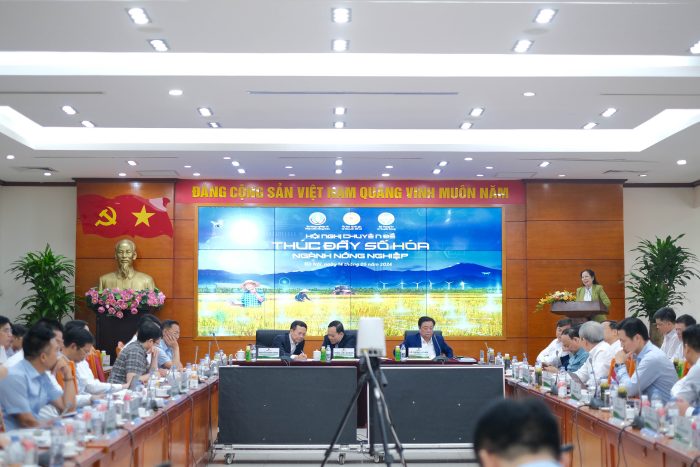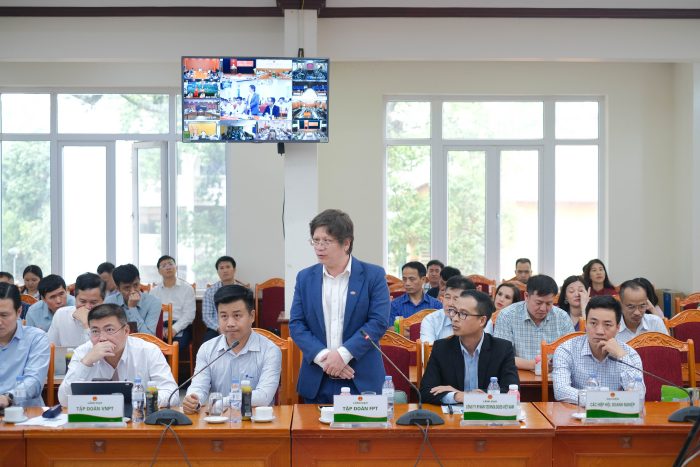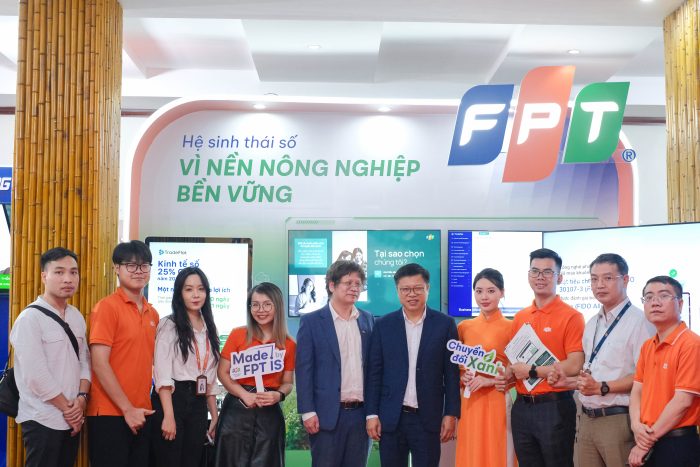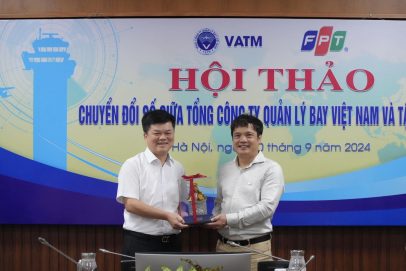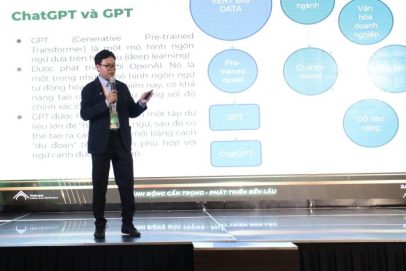FPT IS’s digital ecosystem promotes sustainable agriculture – circular agriculture
Vietnam’s agriculture is gradually shifting from traditional to modern farming methods through the adoption of digital technology, geared towards sustainable development. Digital and green transformation in the agricultural industry, however, faces many challenges. FPT IS experts shared at the Agriculture Digitalization Conference initiatives to foster green agriculture, with the goal of enhancing the competitiveness of Vietnamese agricultural products in the global market.
The Agriculture Digitalization Conference was chaired by Vietnamese Deputy Prime Minister Tran Luu Quang, co-chaired by Vietnamese Minister of Agriculture and Rural Development Le Minh Hoan and Minister of Information and Communications Nguyen Manh Hung, and aimed to exchange knowledge and share initiatives on realizing digitalization of the agricultural sector, targeting sustainable agricultural development, improving productivity and production efficiency, optimizing production processes, providing traceability, and reducing emissions into the environment.
At the conference, Mr. Tran Luu Quang raised issues arising in agriculture digitalization such as institutions, administrative reform, digital infrastructure, digital data, and digital human resources. He requested technology businesses to step in to accelerate digital transformation based on the information and data provided by the agriculture industry, thereby boosting productivity, and magnifying the competitiveness of Vietnamese agricultural products.
The Agriculture Digitalization Conference was organized to exchange knowledge and share initiatives on implementing digitalization of the agricultural industry.
Currently, Vietnamese agriculture is progressively transitioning its farming models to cater for the demands for green growth and green consumption. Green agriculture works towards the intensification of agricultural products’ competitiveness, the enhancement of quality of farmers’ life, the protection of resources and agricultural ecosystems, and related issues, and in doing so, promoting sustainable agriculture in both socio-economic and environmental pillars, aiding in the development of the green economy.
At the event, Mr. Vu Minh Quang – Consulting Director, Enterprise Sector, FPT IS expressed: “Carbon accounting is an essential first step to boost green and sustainable agriculture since it plays a part in making projects green, creating green certificates for domestic goods to cope with mechanisms such as carbon taxes, and to have opportunity to break into the world’s green supply chains.”
Nevertheless, enterprise carbon accounting entails numerous obstacles. The reasons for this are that emission-generating agricultural activities are enormously diverse, emission factors widely vary, specialized regulations/guidelines are highly technical, and organizations and businesses lack personnel with in-depth knowledge of the environment. All of these hurdles prolong implementation times, causing high costs while keeping efficiency low.
Mr. Vu Minh Quang – Consulting Director, Enterprise Sector, FPT IS shared his thoughts at the event.
“With the goal of co-creating green agriculture – circular agriculture, FPT IS proposes two of our solution ecosystems for a sustainable agriculture,” said Mr. Quang.
FPT IS has researched and developed VertZéro, the first carbon accounting solution in Vietnam. The solution fully digitizes environmental data collection, carbon emission quantification, monitoring, and reporting, meeting global standard frameworks on quantification and reporting of greenhouse gas (GHG) emissions and removals such as ISO 14064-1, GHG Protocol, and other standards. FPT IS is actively cooperating and connecting with leading green transformation partners, typically Carbon EX (a Japanese carbon credit trading platform), Faeger (a Japanese decarbonization-oriented agricultural development company), and is willing to share our experiences in implementing and expanding green projects between Vietnam and overseas companies.
To reach our goal of maximizing working capital financing and cross-border business and trade opportunities, FPT IS has developed a digital financial ecosystem – TradeFlat. The solution provides an end-to-end transaction platform, fully addressing the working capital funding needs of agricultural enterprises from raw material import to product distribution on domestic markets, as well as international trade transactions.
TradeFlat is being adopted by leading commercial banks in Vietnam to deploy effective working capital financing programs to businesses in the domestic agricultural supply chain. TradeFlat’s cooperation with national platforms in Japan, New Zealand, and a number of other countries reduces the total transaction time of the entire international trade process from 7-10 days to 0.5- 1 day. This platform will act as a driving factor for the trade, commerce, import, and export processes in Vietnam’s promising agriculture industry.
FPT IS solutions were introduced at the event’s exhibition area.
Also at the event, Mr. Quang recommended: “First, green transformation and carbon footprint reduction should be seen as not just a commitment but an opportunity for businesses’ and the agriculture sector’s transformation. Second, guidelines, regulations, and decrees related to carbon accounting and mitigation should be quickly issued by the Ministry of Agriculture and Rural Development, and relevant ministries and branches. The promulgated processes need to be synchronized with the national roadmap and more importantly, they must keep pace with the roadmap of the product’s output markets. Third, the significance and opportunities created via carbon accounting and minimization should be communicated to the business community. It’s important to affirm that the application of digital technology will enable cost-effective and painless green house gas accounting. Finally, FPT IS wishes to work with the Ministry’s specialized agencies to apply digital applications to carbon accounting, aiming to serve emissions reduction management, oriented towards a sustainable agriculture”.


